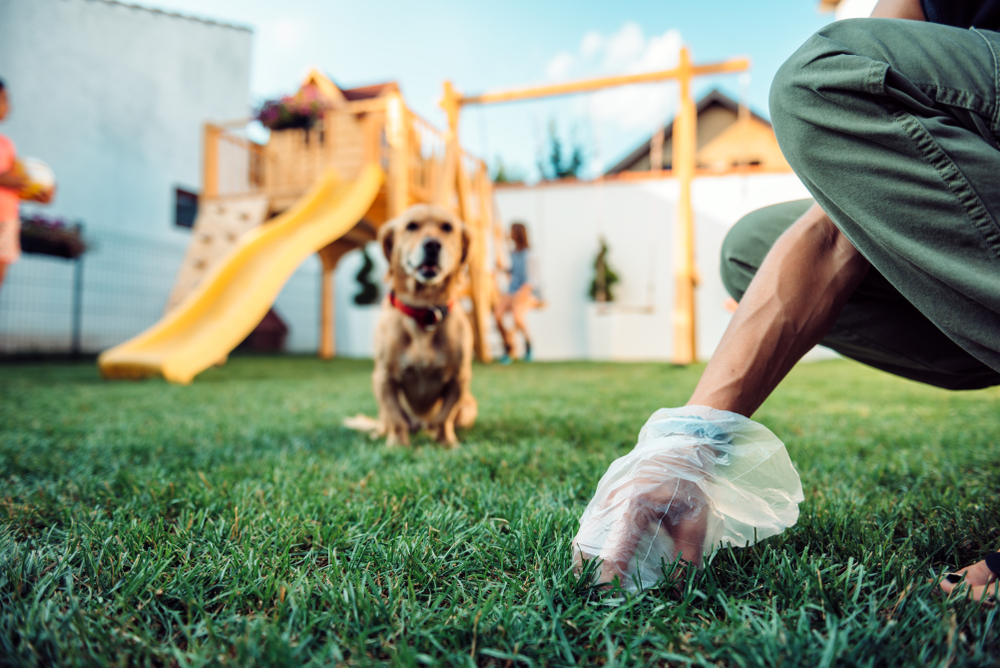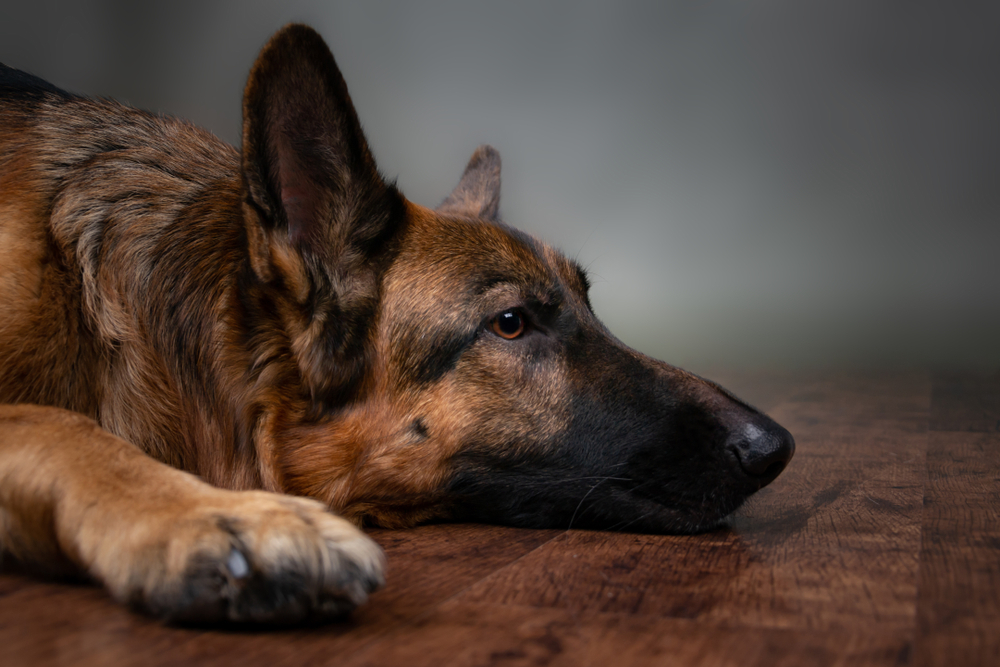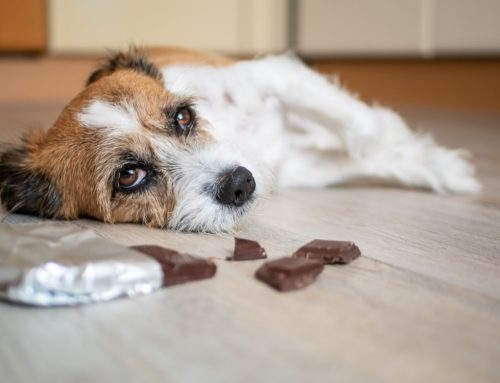Giardia is a microscopic protozoan parasite ubiquitous throughout the world that causes severe gastrointestinal illness in dogs and people. Our Groves Veterinary Clinic team provides information about giardiasis and to offer advice to help decrease your four-legged friend’s risk.
Giardia transmission in dogs
Giardia duodenalis is a simple one-celled parasitic organism that has seven genotypes, A through G. Dogs are most commonly infected with C and D, while humans are most commonly infected with A and B. The parasite’s life cycle has two stages:
- The mature parasites (i.e., trophozoites) live in the host’s small intestine, where they multiply and become cysts about 5 to 12 days after infection.
- Once the parasites transition to the cyst form, they are shed in the infected host’s feces, and can survive for several weeks in the environment.
Transmission occurs when your dog ingests a Giardia cyst when they eat contaminated substances or drink contaminated water. People most frequently become infected by inadvertently drinking contaminated water.
Giardia signs in dogs
Healthy adult dogs frequently show no infection signs, but they can still shed Giardia cysts, which can infect other dogs. Puppies, senior dogs, and immunocompromised dogs are most likely to become ill from a Giardia infection. The parasite inhibits the infected dog’s ability to properly absorb nutrients, water, and electrolytes. Potential signs include:
- Diarrhea — Affected dogs usually have chronic, intermittent, foul-smelling diarrhea that may range from soft to watery, and may be green-tinged, or contain blood.
- Vomiting — Vomiting occurs in some cases.
- Weight loss — If not treated, signs can persist for several weeks, leading to significant weight loss.
- Dehydration — Affected dogs become dehydrated from the constant fluid loss.
- Poor coat appearance — Dogs look unkempt because they lack nutrients.
Giardia diagnosis in dogs
Dogs affected by diarrhea undergo several diagnostics to determine the cause. These include:
- History — Our veterinary team takes a full history to determine if your dog was potentially exposed to Giardia.
- Physical examination — Our veterinary team performs a thorough physical examination, assessing your dog from nose to tail.
- Blood work — Our team performs a complete blood count and a biochemistry profile to assess your dog’s overall health.
- Fecal check — Our team performs a fecal check to test for intestinal parasites. Giardia are so tiny that they may not be detected on a routine fecal flotation, and a special zinc sulfate flotation solution is typically necessary for diagnosis.
- Parvovirus test — Our team may recommend a parvovirus test to rule out this dangerous disease.
- Giardia antigen test — Our veterinary team may analyze your dog’s feces for Giardia specific antigens.
Giardia treatment in dogs
Our veterinary team will devise a treatment protocol based on your dog’s condition, but common approaches include:
- Medications — An antibiotic and an anti-parasitic medication are commonly given alone or in combination for 3 to 10 days to treat Giardia in dogs.
- Fluids — Fluid therapy, administered intravenously or subcutaneously, may be necessary if your dog is dehydrated.
- Diet — Our veterinary team may recommend a low residue, highly digestible diet to help reduce loose stools during treatment.
Infected dogs should be retested two to four weeks after completing treatment to ensure the infection is cleared.
Giardia risk to humans from dogs
While Giardia can be passed from dogs to humans, humans are most commonly infected from drinking contaminated water. If your dog is diagnosed with Giarda, practice environmental disinfection and good personal hygiene to prevent accidental spread to humans. Use dilute bleach to thoroughly clean the dog’s living and sleeping areas and let the areas dry out for several days before allowing people or other pets in the area. In addition, wash your hands well after handling your dog or their feces.
Giardia prevention in dogs

You can take steps to decrease your dog’s risk of Giardia infection. These include:
- Keeping their environment clean — Remove fecal material from your dog’s environment to prevent Giardia cysts from contaminating the ground.
- Providing safe drinking water — Always ensure your dog has access to safe drinking water. On outings, take a water bowl and bottled water to ensure your dog doesn’t drink from contaminated sources.
- Ensuring hygiene — When boarding your dog or leaving them at a doggy day care facility, ensure the environment is cleaned and disinfected appropriately.
- Avoiding fecal material — At dog parks or on walks, ensure your dog doesn’t contact other dogs’ fecal material.
Giardia is a concerning problem for dogs, but you can take steps to lower your four-legged friend’s risk. If your dog is suffering from diarrhea, contact our Groves Veterinary Clinic team, so we can determine if Giardia is causing the problem and remedy the issue with an appropriate treatment strategy.







